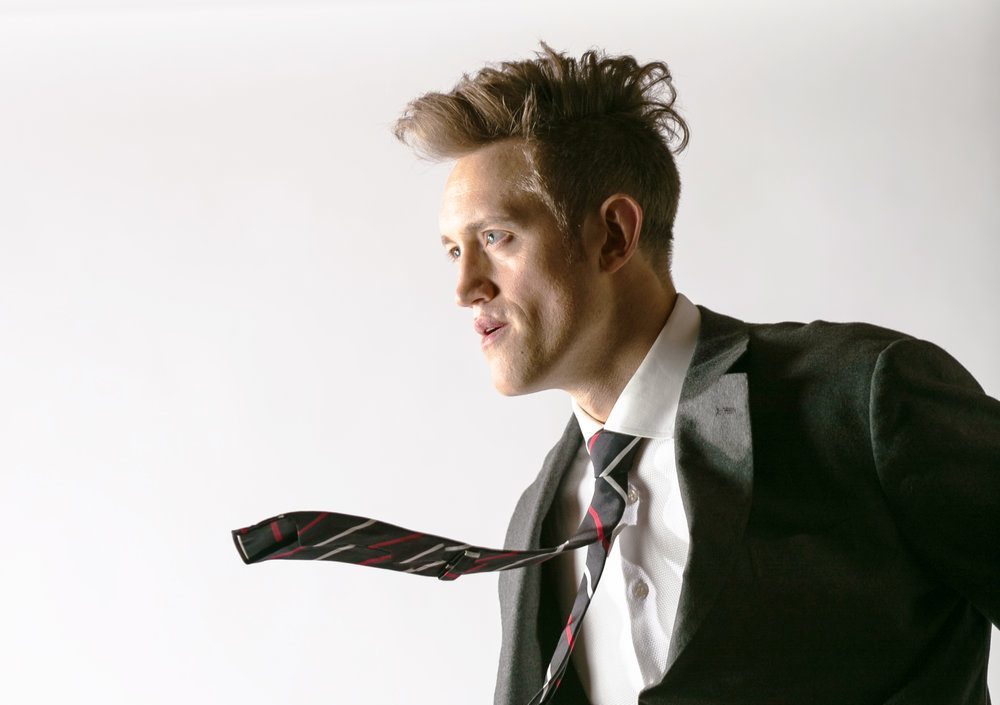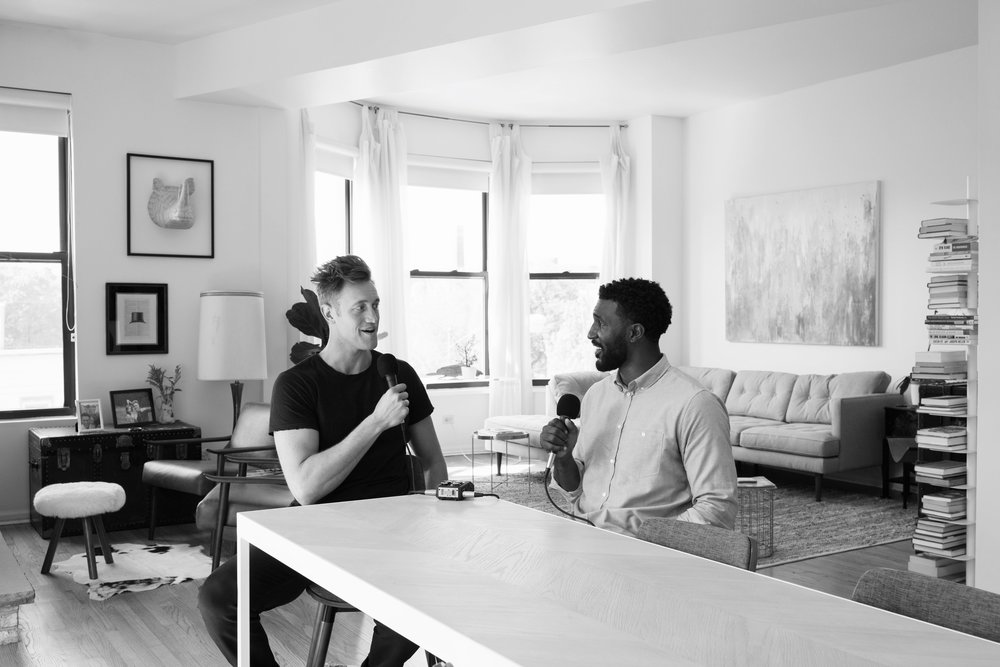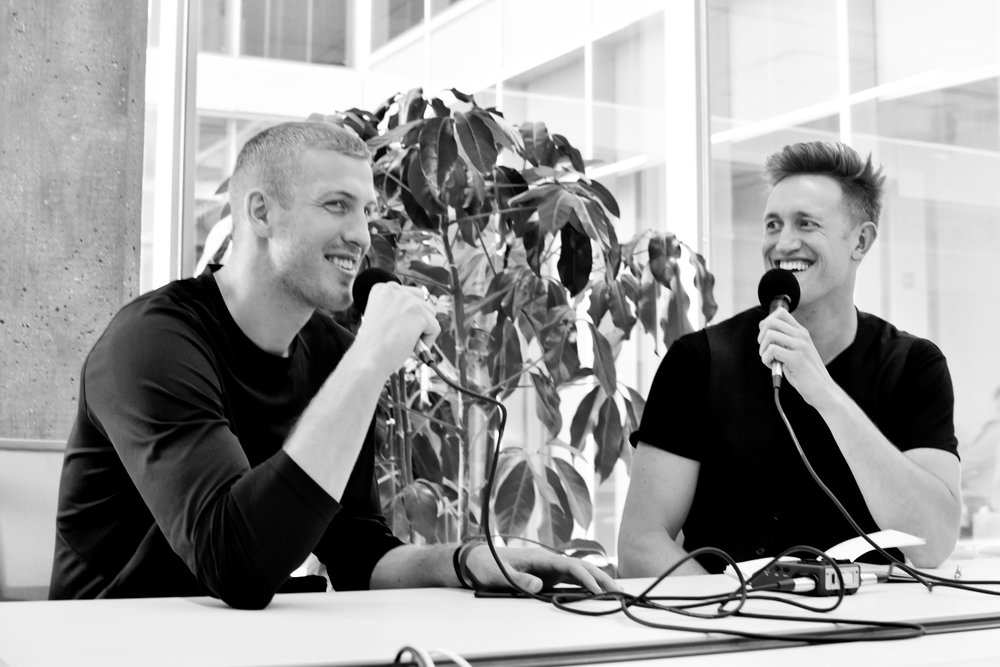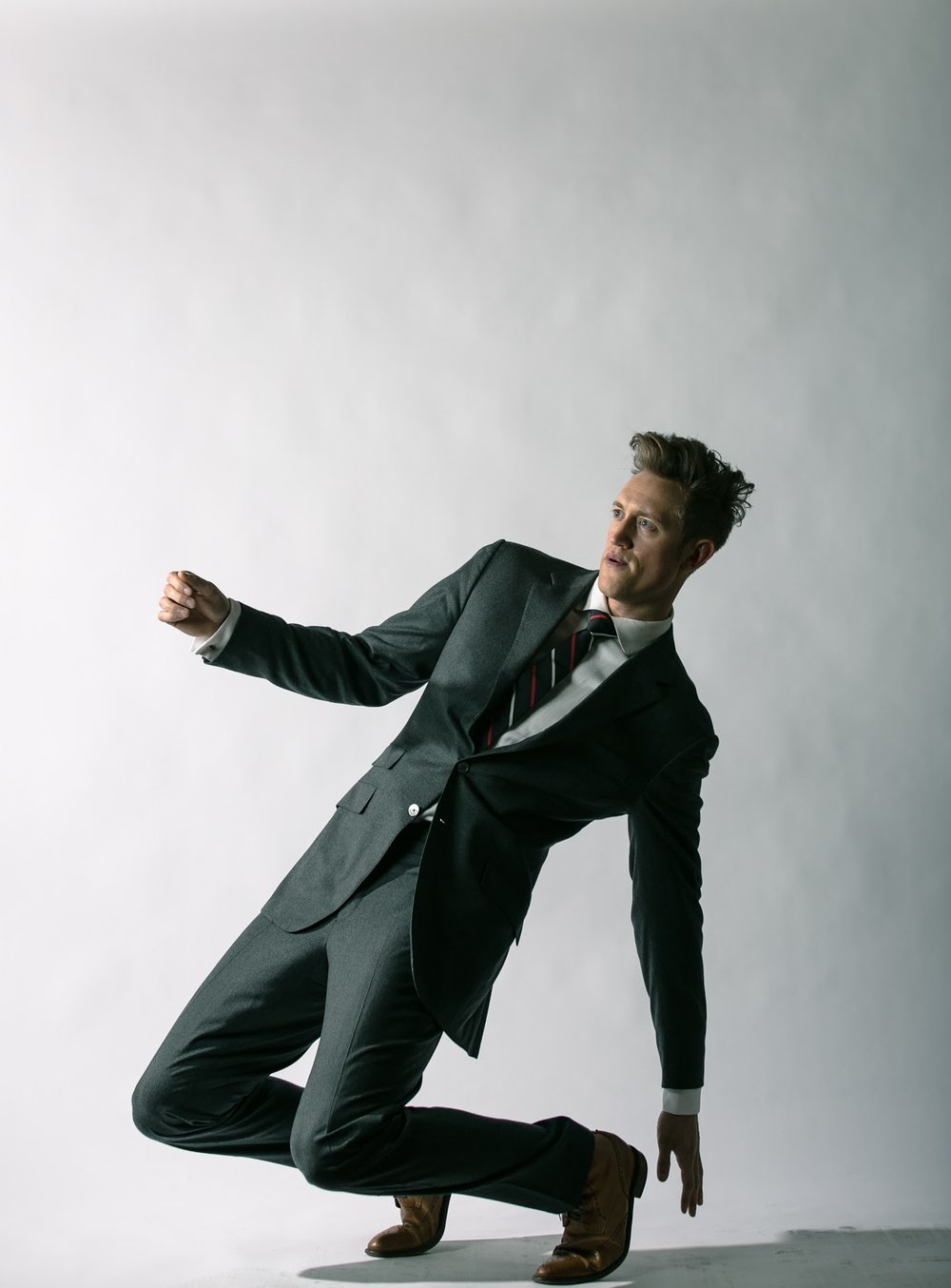
David Gardner Will Inspire Your Next Big Jump
D avid Gardner is 6’ 9” tall. Yes, he’s a former pro basketball player and yes, he often gets asked about it. Now that we got that out of the way, let’s talk about The Big Jump—a jump much like those he used to make during his basketball days. Spoiler alert: it’s a podcast.
Following his career in the sports industry, Gardner, founded top-rated Chicago branding firm, ColorJar, from his bedroom back in 2008—his version of the big jump—and has been on a mission to inspire ever since. Sitting down with former pro athletes, a group of people who might seem to be enjoying a life that others can only dream of—think considerable salaries, endorsements and television deals, fame and recognition usually followed by an enormous fan base—he takes an honest and first-hand look at the lives and careers beyond sports. Gardner isn’t afraid to ask the tough questions: What are the challenges former athletes face, the hardships they have to battle, the new version of themselves? What happens when the stadium lights are turned off on their careers?
The Big Jump guests have spent their youth building a career in various sports and now have applied the same level of hard work and dedication to excel in many diverse industries: Kris Humphries talks life after NBA that includes real estate and Five Guys franchising businesses. NHL veteran, Brooks Laich, builds a new life in Hollywood. Former pro rugby player, Luke Milton, becomes fitness entrepreneur known as celeb trainer on Revenge Body on E! and Founder of Training Mate fitness studios. Two-time Olympic medalist swimmer Christine Magnuson makes her way into Silicon Valley. Superbowl winner Ryan Mundy turns tech investor. New York Giants linebacker Spencer Paysinger taught himself screenwriting as an escape from football—a hobby that became a major business opportunity when he pitched the story inspired by his life that turned into the CW football drama All American. Former US Women’s Soccer captain and Olympic gold medalist Julie Foudy transitions into a writer, sports broadcaster, and women’s rights advocate dedicated to inspiring young girls to chase their dreams. And that’s just a few of the stories featured in the podcast’s first season.

David Gardner and Ryan Mundy by Tom Gavin
Discussing issues such as mental health, post-achievement depression, identity and self-worth, the guests shed light upon matters very common among athletes that are, at the same time, especially easy for anyone to relate to. The Big Jump is a podcast about human reinvention, which without a doubt comes with its own set of challenges. To inspire your own big jump, Gardner provides a powerful toolkit—insights and stories behind real life success—not to prove that there’s a clear path to follow but instead, to highlight that one size most emphatically does not fit all. Reinventing yourself is not easy but it’s all about defining success in your own terms, be hard working, adaptable and most importantly, true to who you are.
As you can imagine, a man standing at Gardner’s height can jump super high. But Gardner didn’t choose to rest simply because he made a big jump for himself. Building ColorJar, a brand consulting and design firm with a focus on revitalizing brands at key moments of change, he helps others to take the leap, too. With The Big Jump podcast he does the same: from brands, to former pro athletes, to you and me, he proves that making a jump is the only way for anyone to achieve a higher level of themselves in work and in life. And he’s here to help you push through it. Which in a sense, means, he has come full circle.

David Gardner and Mason Plumlee courtesy of ColorJar
With the rise of the athlete-turned-entrepreneur it’s become clear that athletics and entrepreneurship have a lot in common. Can you talk about the qualities that help one excel in sports but also thrive in business?
David Gardner: Athletes have an unfair advantage in business thanks to the years of intense mental training that comes with dedication to sport—I refer to this earned asset as their “Athletic Mind.” Those with an Athletic Mind believe in their ability to create positive outcomes, are willing to work full-tilt with no guarantee of success, and possess exceptional resilience. Athletes also have a sixth sense around positive team dynamics that help them understand their role, build positive culture, and find ways to contribute to the organization’s greater good.
In what ways has your career in sports prepared you for the ups and downs of the startup world?
David Gardner: As a rookie playing professional basketball in Germany I tipped off a midseason game as a starting player. At halftime I was told I was fired and would be replaced. The next day I talked my way into a second chance, under the condition that I played well enough to help our team win its next game. We won and I was able to complete the season with the team.
The arc of this story encompasses the “game” of entrepreneurship—one moment you’re up, one you’re down, and it takes a lot of drive and a willingness to put yourself out there to push forward. My grandmother always said “life is what you make it”—both athletics and entrepreneurship are fueled by assertive proactive behavior.

David Gardner by Quinn Wharton
The Big Jump sheds light on one of the biggest challenges pro athletes have to face, life after sports, while sharing valuable advice on how anyone can overcome obstacles in their own life in order to become who they need to be for the next step. Why is now the right moment in time to have this conversation?
David Gardner: Professional athletes interviewed on The Big Jump make for particularly vivid examples of human reinvention because they’ve experienced the loss of one identity and the creation of a new one beyond their sport. The episodes dig deep and bring to the surface transferable lessons for anyone, athlete or not.
The need to reinvent—to write our own story—is a timeless, universal human dynamic. I’m telling the story through professional athletes in part because it’s my own story but also because popular culture is in the early phase of a sea change in which athletes are rejecting the stereotypes of yesterday to show the world—and themselves—they’re more than an athlete.
What are you hoping the listeners will take away from this?
David Gardner: Everyone has a past worth building upon and a future worth building. The aim of The Big Jump is to inspire the listeners’ next big jump—weather that’s a new career path or some new challenge in life. Change presents itself to everyone —athlete or not —and the question becomes how we handle that change and take ownership of our own reinvention.
Reinventing yourself is no easy feat, especially for former athletes, who are forced to make this big change at a very young age, often while being in the spotlight. On a smaller scale, inventing or reinventing yourself on social media comes with a certain level of pressure—from extreme self criticism, to haters and trolls, to imposter syndrome. Having founded ColorJar, one of the leading brand strategy and design firms in Chicago, what’s the best piece of advice you could give someone looking to develop a compelling personal brand—especially in the digital age, when that’s more important than ever?
David Gardner: The personal brand movement is toxic. Adopting the idea that we’re supposed to behave as if we were Nike, Apple, or even our favorite local coffee shop is a recipe for unhappiness. My advice? Remember that you are not a brand, despite some parallels between what a brand is and what a reputation is—so stop trying to be one.
You are a human being that has gifts to share with the world. And if you share those gifts with all your heart, and in ways that add value to the life experience of others, you will attract people and opportunities into your life. And as a byproduct of sharing your gifts, you will create a reputation of which you can be proud.
I’m not perfect here. I get sucked into the dopamine hit of social media as much as the next person and take myself too seriously at times, but I have found I’m much happier and more successful when I’m focused on making an impact on people by sharing what I love, not by posting what I think is “on brand” or what gets people to tap the like button.
Who’s on your dream podcast guest list?
David Gardner: Arnold Schwartzenegger. From world champion bodybuilding icon, to American citizen, to entrepreneur, to actor, to health activist, and to governor—his track record of reinvention is remarkable. I want to tell the story of how Arnold put a dent in the universe.
